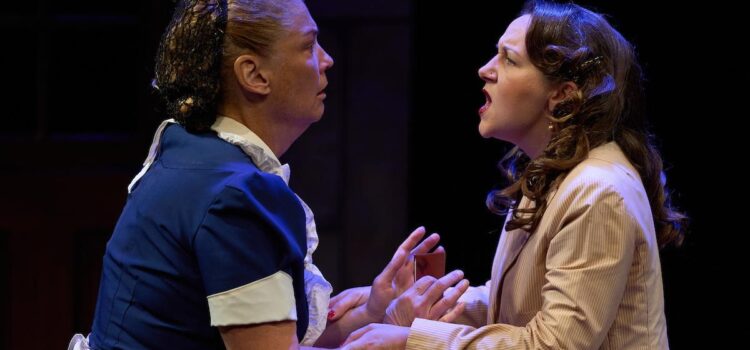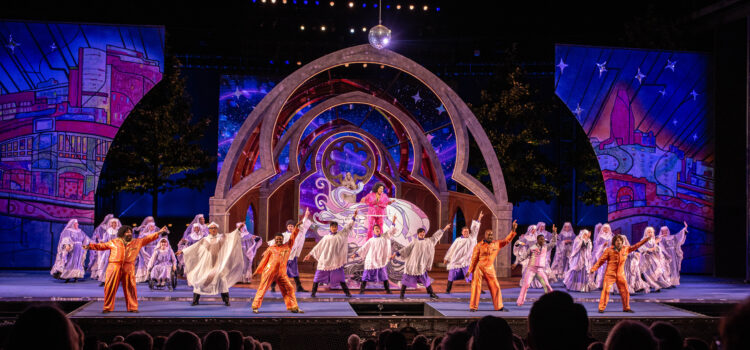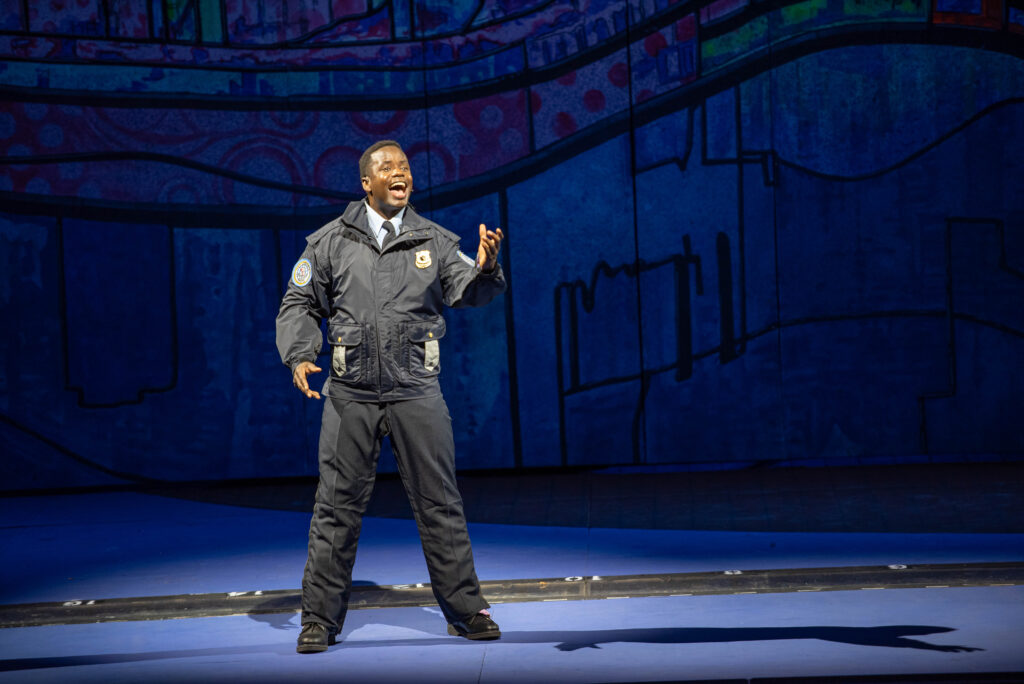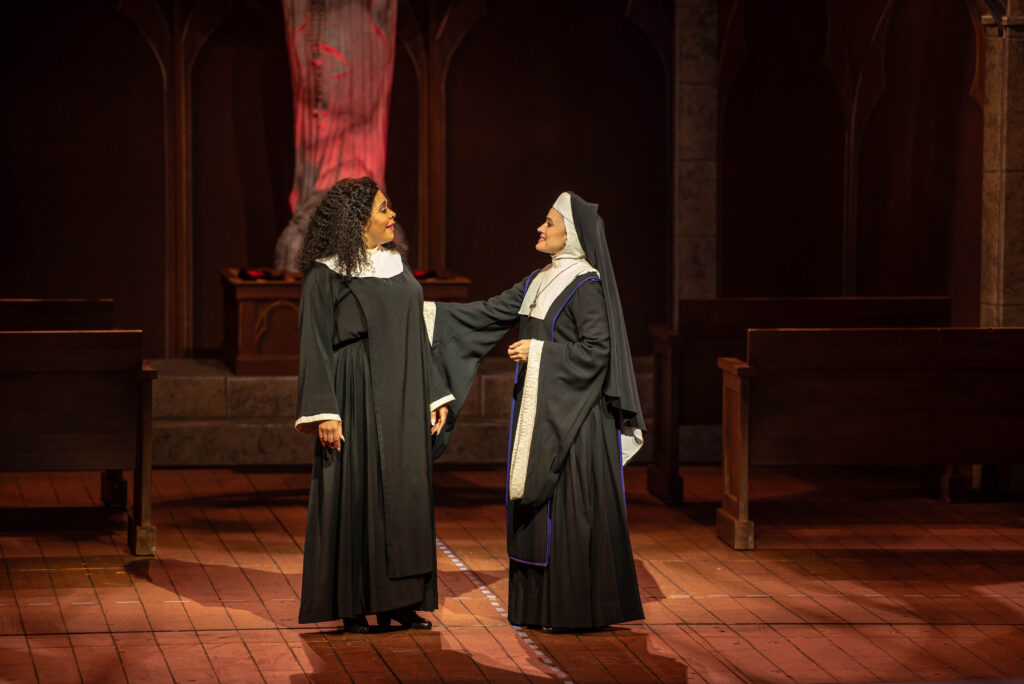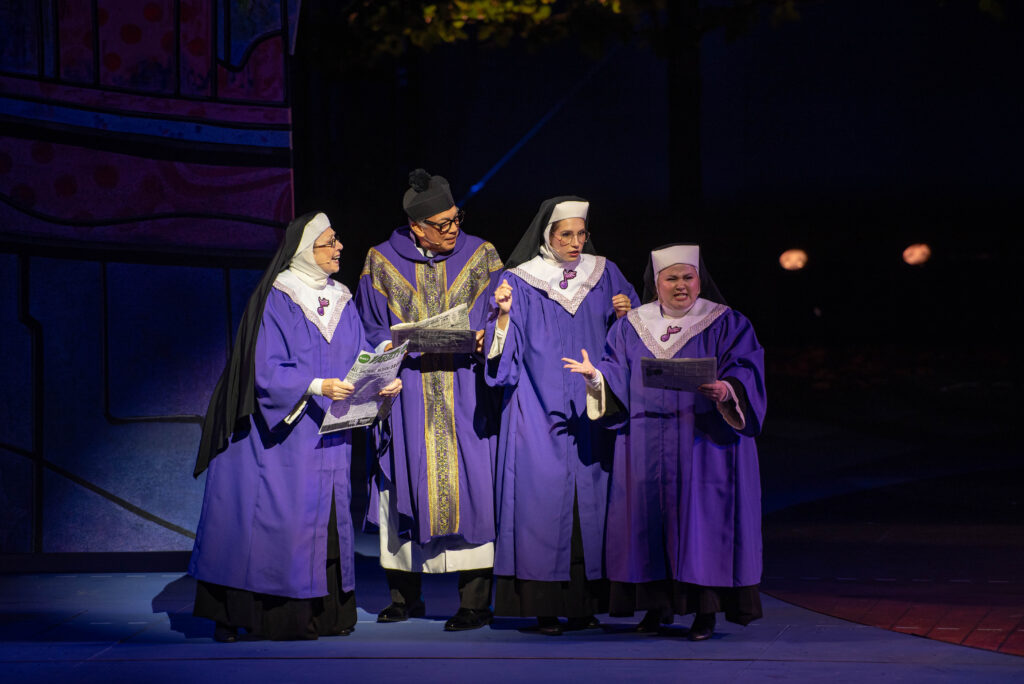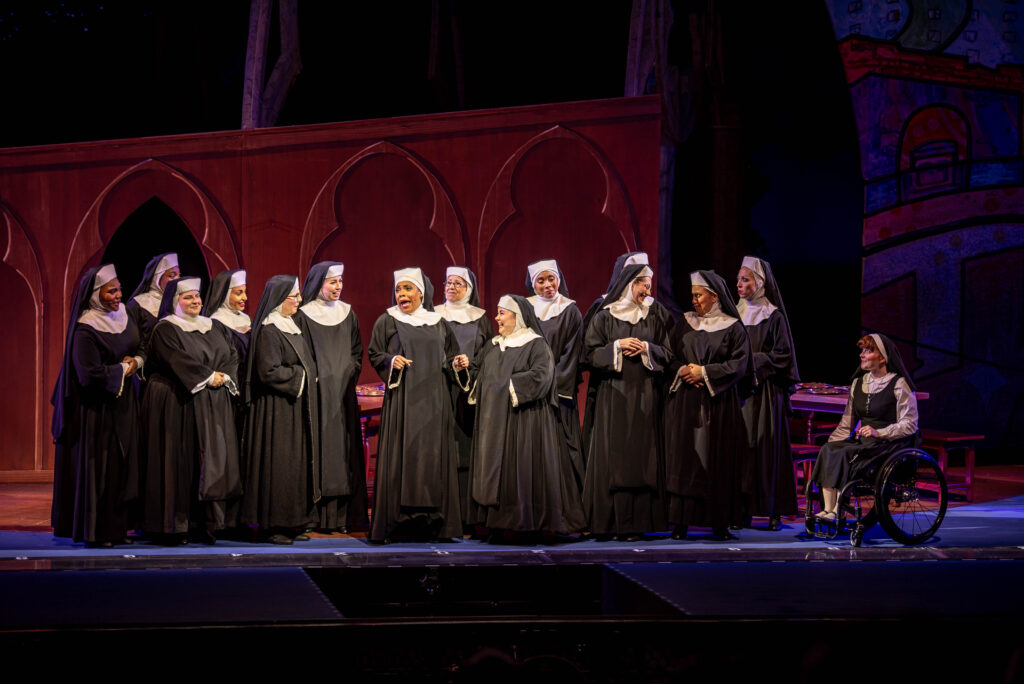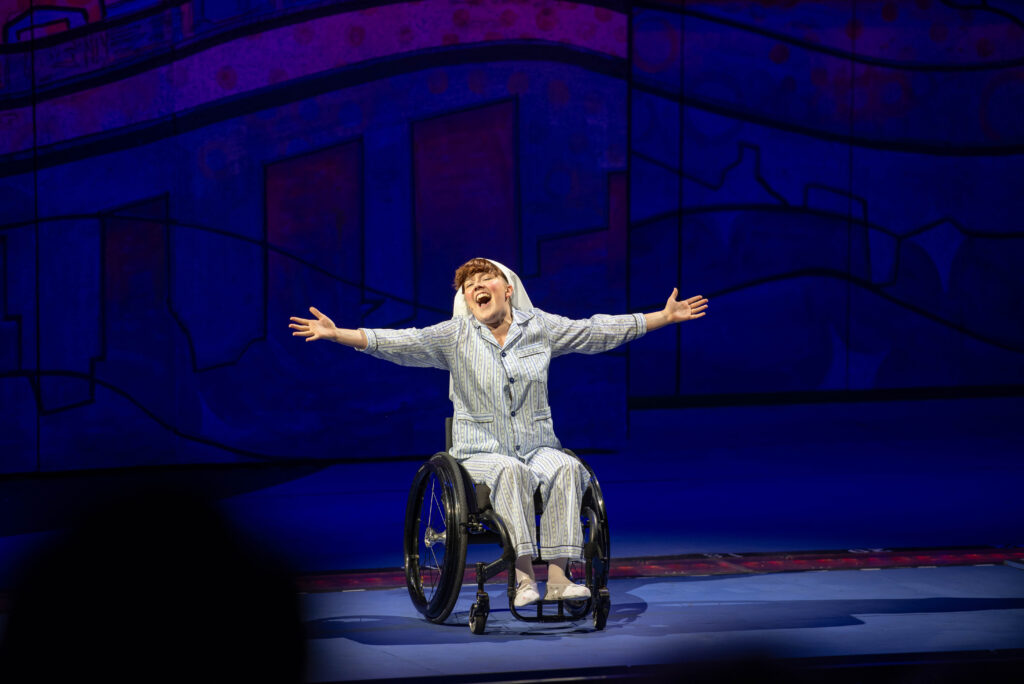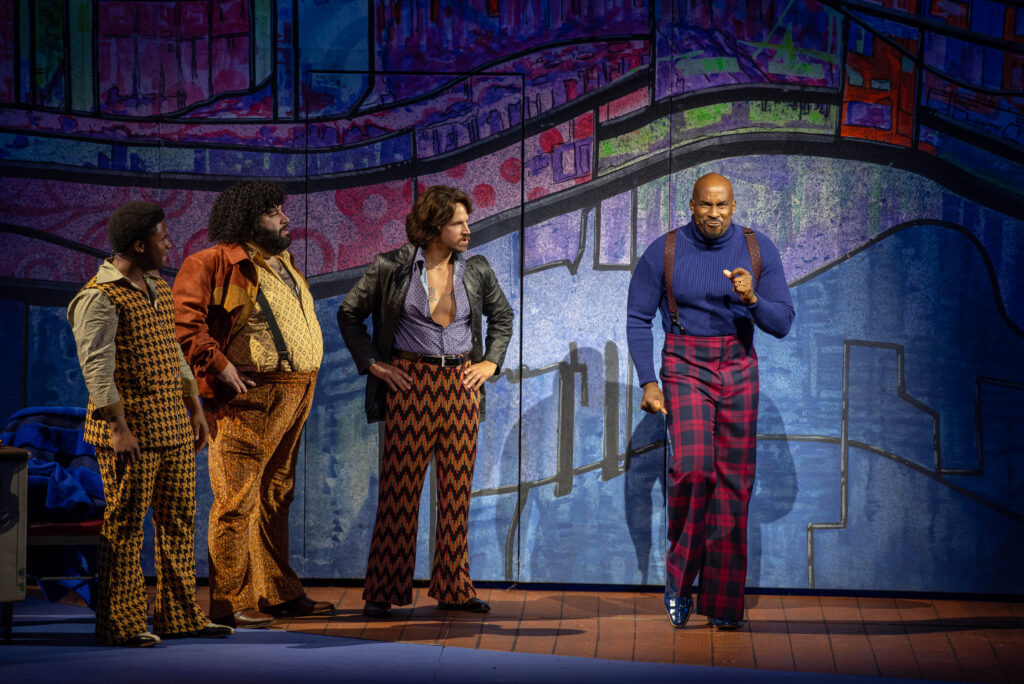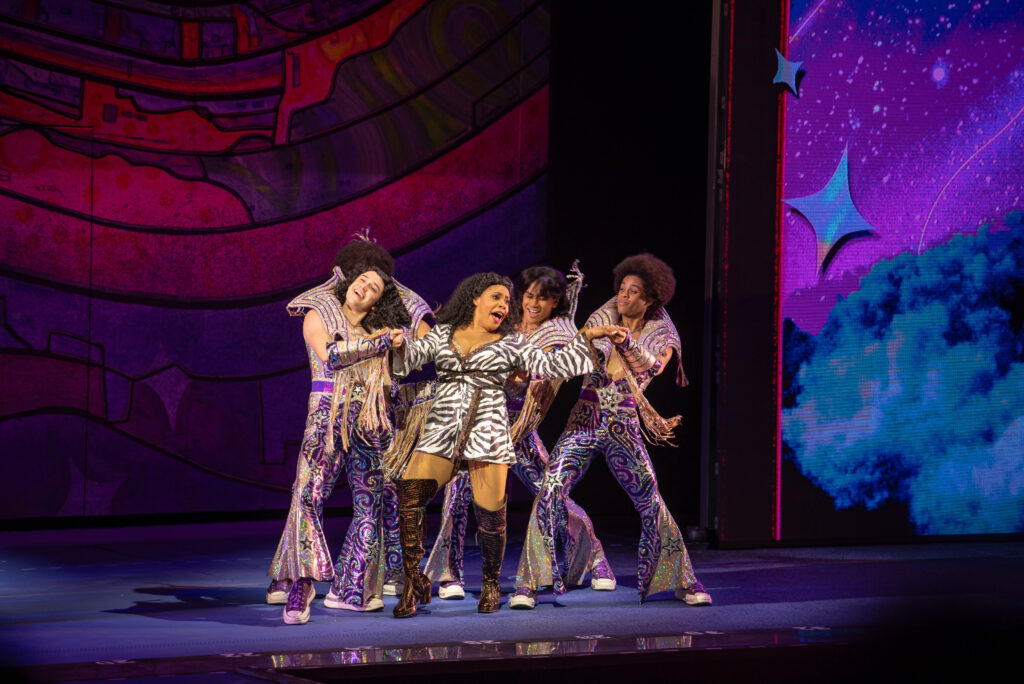By Lynn Venhaus
Throughout history, class wars have ended badly for many people, overt often for people in the lower class, and less so for the ruling class.
But class never matters when people show you their true selves.
Such is the complicated “Bitter Fruit,” a 2018 social commentary-human drama by Argentinian playwright Hector Levy-Daniel, “El Fruto mas amargo,” which has been translated from Spanish by Philip Boehm.
Boehm, Upstream Theater’s artistic director, wanted to bring it here for the U.S. English language premiere, so he not only translated but also directed it in a deliberately mysterious way.
Since 2005, two-thirds of the plays Upstream has produced have been U.S. or world premieres, with the goal to not only “move you” but “move you to think.” And they always do. This is a play to mull about, for at its center is a logical question on identity that has dramatic consequences. How can you deny who you really are, and what does that say about us as a society?
The playwright’s focus on identity crisis has roots in Argentina’s Dirty War, when from 1974 to 1983, an estimated 9,000 to 30,000 were killed by the state, or disappeared, in a right-wing effort to eliminate leftist political adversaries, including writers, students and journalists. Others were imprisoned.
Their children were not always killed, and sometimes, they were put up for adoption or given to supporters of the right wing.
There are children born during this period that don’t know their real identities because they were adopted by their captors and given new lives. They either discover this fact or never know the truth, but there isn’t any justice or peace amid the inequality that rages, along with political corruption.
According to the play’s notes, about 500 children were affected and the Argentine government is still sorting it out after years of protests from grandmothers.
In this quietly devastating production, a committed cast provides complex portraits of people representing different factions of entitlement and insincerity, of loss and lies.
However, as good as actresses Jane Paradise, Jennifer Theby-Quinn and Michelle Burdette Elmore are, all members of the Actors’ Equity Association, they are not Latino women, and they are playing characters named Luisa, Maria, and Teresa respectively.
Isaiah Di Lorenzo has a small but important supporting role as Pedro Coltinari, the labor representative in factory negotiations, and in flashbacks, as Maria’s teenage paramour. He establishes his character’s pure heart and breaking point in only a few scenes.
None of the four identify as Hispanic — although the play never specifically states Argentina or alludes to the Dirty War, and there are no accents used, so…but it is perplexing, and does raise questions.
If it’s vague on purpose, so be it. Nevertheless, these days, people tend to notice whitewashing. It may not be as egregious as, say Laurence Olivier as “Othello” and John Wayne as Genghis Khan in “The Conqueror,” but it is something that crossed my mind, especially given Upstream’s commitment to shows with global themes involving marginalized people.
Set in a mansion, it’s late night or early morning, depending on your perspective, and a new maid, Luisa (Paradise), is up to prepare her mistress some tea, as requested as she waits for her daughter. Upon arrival home, haughty Maria, demands to know who this interloper is in her home.
As played coldly by Theby-Quinn, Maria is a cruel woman who has no qualms about making people feel inferior in her presence. She lacks compassion and a conscience, brought up in wealth, sheltered from the world. She is now running her father’s cotton mill with a tight fist and a disdain for the workers. They are in financial trouble, and Maria is tough about negotiations. Her mother, Teresa (Burdette Elmore) is clueless (or is she?).
Yet, once upon a time, Maria fancied a local boy, someone beneath her in social status, and those scenes reflect a person she used to be but is far removed from now.
Teresa, who was kept in the dark about that relationship, is oblivious to other behaviors and sentiments as well, and Michelle Burdette Elmore portrays her as if she’s firmly entrenched in a bubble — and a bit la-di-da.
Luisa’s gaze is a tad too intense for Maria, who is threatened by the new maid, for she views her as a spy who has infiltrated the home on behalf of the workers in the factory. Paradise’s gut-wrenching performance is the show’s highlight.
As tension increases – especially with suspicious deaths, and characters smolder, the secrets, deceptions, and denials are slowly disclosed.
Another of the show’s high points is original instrumental music performed by guitarist Lliam Christy. The minimalist scenic design by Patrick Huber represents a small portion of a large estate, with ornate touches to indicate affluence, darkly lit by Steve Carmichael to reflect shadows. Costume designer Michele Siler selected outfits according to economic status.
The playwright challenges memory and how sacrificing love shows true colors. It’s not an easy play to understand. Because one is off-guard, it is hard to relate to – however, Paradise’s performance as a crushed woman who has lost everything is haunting. Nevertheless, it brings attention to a tragic, dark time involving innocent children – and is that ever over?
Upstream Theater presents the US premiere of “Bitter Fruit,” by award-winning playwright Héctor Levy-Daniel in a translation by Philip Boehm, Oct. 13 through Oct. 29. It is 1 hour, 30 minutes, without intermission. Performances are Thursday through Saturday at 8 p.m., and at 7 p.m. Oct 15 and 2 p.m. Oct.22 and 29, and take place at the Marcelle Theatre, 3310 Samuel Shepard Dr. in Grand Center. For more information: www.upstreamtheater.org, For tickets, visit: https://www.metrotix.com/events/detail/upstream-theater-bitter-fruit
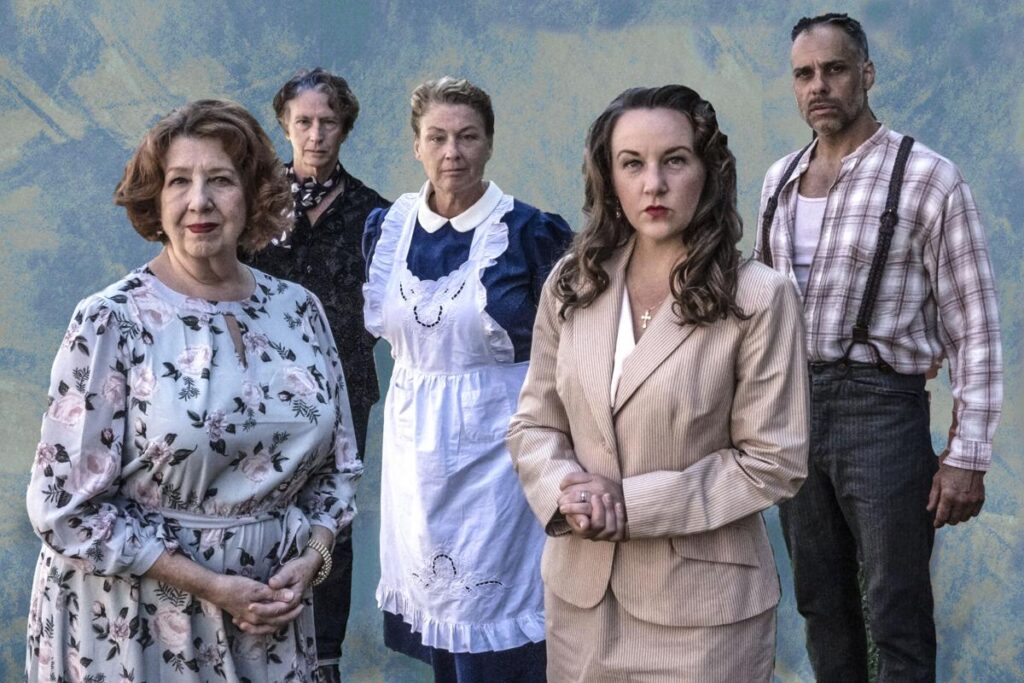

Lynn (Zipfel) Venhaus has had a continuous byline in St. Louis metro region publications since 1978. She writes features and news for Belleville News-Democrat and contributes to St. Louis magazine and other publications.
She is a Rotten Tomatoes-approved film critic, currently reviews films for Webster-Kirkwood Times and KTRS Radio, covers entertainment for PopLifeSTL.com and co-hosts podcast PopLifeSTL.com…Presents.
She is a member of Critics Choice Association, where she serves on the women’s and marketing committees; Alliance of Women Film Journalists; and on the board of the St. Louis Film Critics Association. She is a founding and board member of the St. Louis Theater Circle.
She is retired from teaching journalism/media as an adjunct college instructor.

